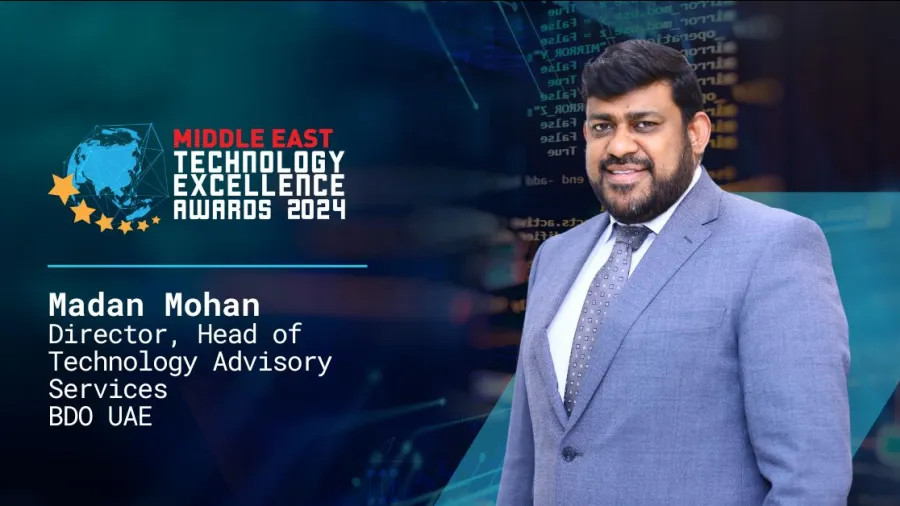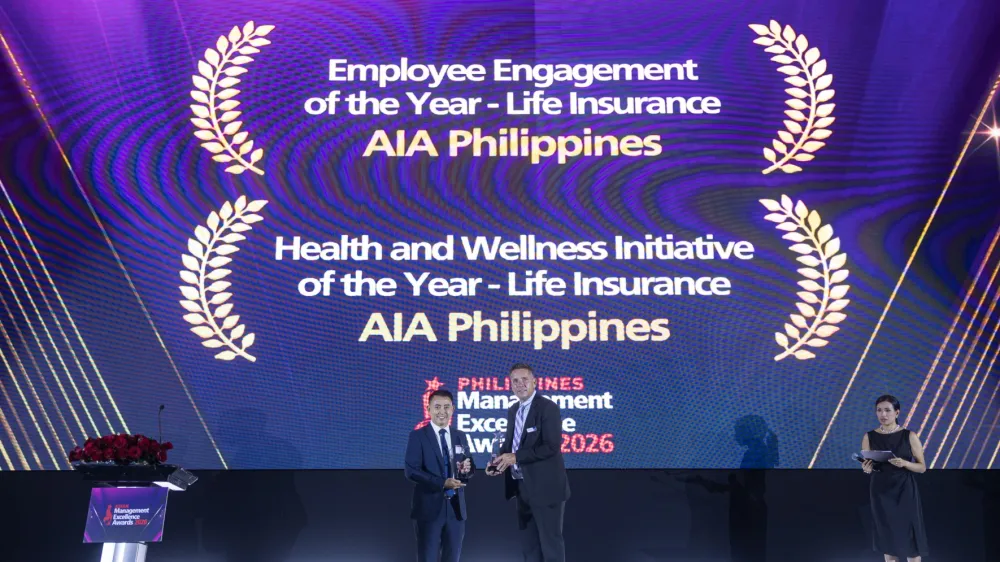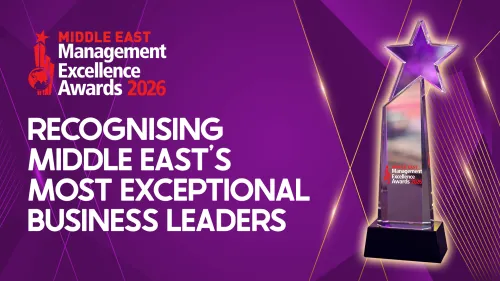
Balancing innovation and security: Madan Mohan offers perspective on securing the Middle East's digital future
As data becomes more critical in the region, organisations must prioritise information security governance with leadership commitment and continuous improvement.
The Middle East is rapidly emerging as a hub of technological innovation, driven by ambitious economic diversification plans and significant investments in digital transformation. This shift is reshaping various industries whilst also raising critical issues around data privacy, cybersecurity, and information governance.
As the region embraces new technologies, the insights of experts like Madan Mohan, Director, Technology Advisory at BDO UAE, are invaluable.
Mohan is a seasoned professional with nearly two decades of experience in data privacy, information security, and risk management. His career is marked by extensive experience in diverse sectors, including banking, insurance, telecom, and manufacturing. His expertise encompasses data privacy, business continuity management, information security governance, and risk assessment.
Serving as a judge at the Middle East Technology Excellence Awards 2024, Mohan provided a deep understanding of the evolving technological landscape and the imperative of robust security measures.
The evolving data privacy landscape
Mohan foresees significant changes in the data privacy landscape in the Middle East over the next five years, driven by economic diversification and digital transformation initiatives, amongst others.
As countries in the region continue to diversify their economies, the volume and importance of data will increase, necessitating stronger data privacy measures to support digital growth. This will likely be accompanied by stricter data privacy laws and more rigorous enforcement, putting pressure on businesses to ensure compliance.
Moreover, as data breaches remain a major concern, there will be a growing emphasis on cybersecurity measures to protect personal data. The advent of new technologies like artificial intelligence (AI) and blockchain will also further necessitate adjustments in data privacy regulations, challenging lawmakers to address new ways of data collection and usage.
Top management in information security governance
In terms of information security governance, Mohan emphasised the critical role of top management and boards. He underscored the need for leaders to set the security tone for the organisation, pointing out that employees get a deeper understanding of the importance of information protection if the tone is set from the top.
Top management and boards are responsible for the resource allocation needed to invest in such security measures. In line with this, they are also ultimately accountable for the organisation's cybersecurity regulatory compliance.
Effective information security governance requires a structured framework, proactive risk management, and a security-first culture.
“Proactively identify and assess potential security risks. Implement measures to mitigate these risks and minimise the impact of any security incidents,” he said. “Encourage a culture where security is a priority across all levels of the organisation. This involves leadership demonstrating a commitment to security and integrating it into the organisational values.”
Mohan advised the adoption of formal information security governance frameworks, such as the ISO 27001 or NIST Cybersecurity Framework for a structured approach to implementing security controls.
Furthermore, Mohan noted that no single security measure is fool-proof, so implementing multiple levels of defence would significantly increase an organisation’s overall cybersecurity posture and make it harder for attackers to succeed.
Regular training and awareness programmes where employees are taught security policies, best practices, and the latest threats were likewise highlighted as crucial. This way, it is ensured that security awareness is a continuous process rather than a one-time event.
“Security isn't a one-time fix. Regularly monitor and measure the effectiveness of your security controls. Update your strategies as needed to adapt to new threats and vulnerabilities,” Mohan stressed.
Opportunities and pitfalls
Mohan identified several common pitfalls that organisations encounter during cybersecurity audits. Poor scoping, a compliance-focussed approach over true security, lack of expertise, limited stakeholder involvement, and ineffective remediation plans are frequent issues.
Ensuring a comprehensive and well-defined scope, focussing on genuine security posture whilst not forgoing compliance, involving qualified personnel, engaging key stakeholders to encourage buy-ins, and developing clear remediation plans are crucial for effective cybersecurity audits and avoiding exposing the organisation to risks. Plans must prioritise risks, assign ownership, and establish timelines for remediation.
On the other hand, when it comes to technological innovations impacting data privacy and information security, Mohan pointed to promising developments such as homomorphic encryption, differential privacy, blockchain technology, and the use of artificial intelligence for security. These innovations offer new ways to secure data, protect privacy, and enhance overall cybersecurity measures, making them vital in today’s digital landscape.
Effective cybersecurity leadership
Keeping an organisation's data secure in today's ever-evolving digital landscape requires strong leadership. Mohan highlighted several key qualities that leaders should possess.
Firstly, visionary and strategic thinking is essential. “Effective cybersecurity leaders look ahead, anticipating emerging threats and trends,” he said. Cybersecurity shouldn't be reactive; effective leaders understand the evolving threat landscape and can plan accordingly.
Mohan also stressed the importance of aligning cybersecurity efforts with the organisation's overall goals. Strong leaders can bridge the gap between security and functionality, ensuring that security measures support the organisation's mission without hindering its ability to operate effectively. This requires clear communication and influence. Leaders need to be able to articulate the importance of cybersecurity, not just to technical teams but to everyone within the organisation. By fostering a shared understanding of the risks and benefits, leaders can gain buy-in and encourage a more security-conscious culture.
Lastly, given that effective cybersecurity requires collaboration across departments, leaders have to build strong relationships with other stakeholders to create a more unified approach to security.
As a judge at the Middle East Technology Excellence Awards 2024, Mohan looks for technological solutions demonstrating originality, scalability across the region, long-term sustainability, and a strong focus on user experience.
Innovations that leverage emerging technologies and prioritise data privacy and security are particularly noteworthy as well. These attributes ensure that solutions are not only groundbreaking but also practical and capable of meeting the evolving needs of the region.


















 Advertise
Advertise









